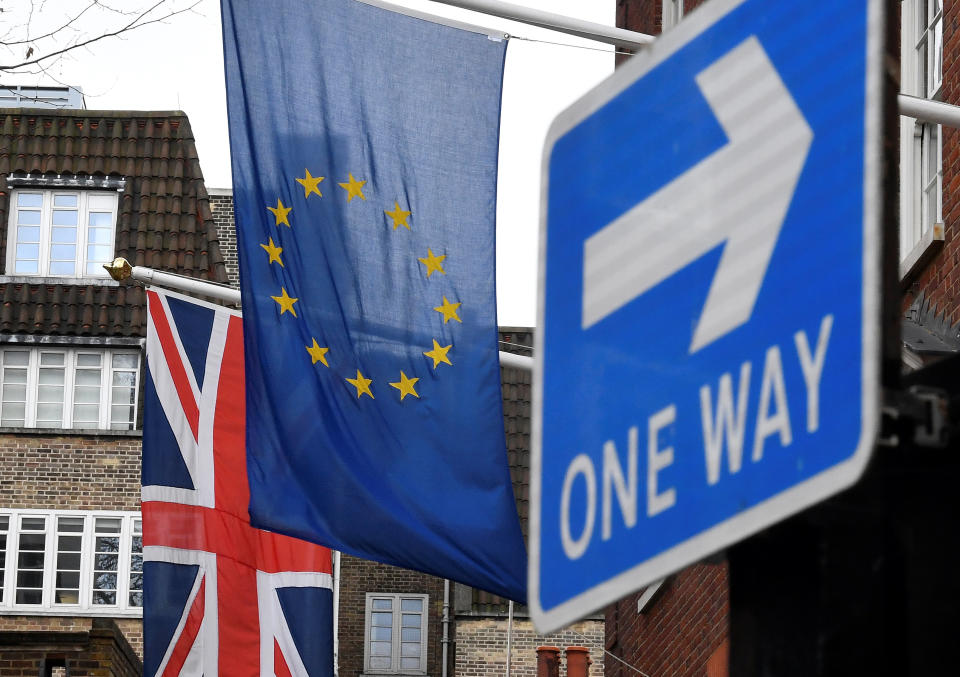Britain's Brexit culture is hurting London's tech-leader status

The UK general election may be over but the clock is now ticking down to Britain leaving the European Union, and the question of what Brexit will mean for the startup community was high on the agenda at Techcrunch Disrupt in Berlin.
Volker Hirsch, partner at Amadeus Capital, startup-and-investor adviser Bindi Karia, and Glenn Shoosmith, founder of JRNI said they are already seeing negative effects of Brexit on the UK’s status as the place to be for European and other foreign startup founders.
They told the Disrupt audience on 11 December that they believe London’s magnetic pull will weaken significantly once the UK is no longer part of the EU.
“There are some people that can’t raise money any more from institutions like the European Investment Fund (EIF), which is responsible for about 30% of all venture capital deployed in the UK,” Hirsch said.
READ MORE: UK's HigherSteaks races to create pork from animal cells, not slaughtered meat
Since then, prime minister Boris Johnson’s Conservative party won 365 seats. This is way above the 326 seats needed in parliament to form a government. With this comfortable majority of 80 seats, Johnson can push through a Brexit deal and start reshaping trade and relations in the way he wants, without worrying too much about getting support from external politicians.
Overnight on 16 December, Johnson made the move to make it illegal for parliament to delay a Brexit transition beyond 31 December 2020 — seemingly pushing to make Brexit inevitable.
London has always been miles ahead of other European cities with it came to startup investment, but that will could suffer if the British government does not take serious action to back the startup sector to ensure it stays attractive to founders and VCs, the panel said.
The British Business Bank is stepping up, but “it’s not going to be the level of capital required to make up the shortfall from the EIF and others.”
“What’s going to be more impacted is new companies moving to the UK,” Bindi Karia said. “For them, the real decision now is ‘do we set up somewhere like Paris or Stockholm or Berlin versus London?’ whereas before it was about London and only London.”
Traditionally, the British capital has been the launchpad to the US and also where the greatest concentration of investors are. Karia believes that London-based founders will probably stay put and be okay, but noted that the government urgently needs to set up some sort of Brexit subsidy to support small early-stage startups: “Of course, they are not going to, but one can dream.”
A new, unwelcoming culture

For Shoosmith, the UK’s change of atmosphere and attitude since the Brexit referendum has been saddening.
“The great thing about London was that developers came from all over the world, it was this amazing place to live and work and had a hugely open accepting culture — that has changed,” Shoosmith said.
“People don’t feel welcome and that’s an embarrassment for my country, that people don’t feel welcome,” he added. “The indecision of Brexit is hurting it so badly.”
Uncertainty coupled with feeling unwelcome is already impacting academics, according to Hirsch. Amadeus Capital Partners invests largely in startups coming out of universities, and Hirsch said that scientists are feeling hesitant or even deterred to move to the UK because the message from the prime minister is that Britain is not your home.
“There are scientists who don’t really want to move [to the UK] anymore because they don’t feel welcome,” Hirsch said. “UK universities are world class, and if that would drop we would feel that quite quickly.”
“Talent flow into and out of universities… is something that is of concern,” Hirsch told Yahoo Finance UK on the sidelines of the conference. “You had usually 30,000 to 40,000 students a year coming from the EU and studying in Britain despite the high tuition fees because the research in Britain is world class. Now this number has literally gone down to almost zero,” he said.
University challenge

One big worry for those considering UK universities, is that, unlike say in Germany where further education is largely free, tuition at British universities can run to £40,000 ($52,805), and after Brexit, “you just don’t know that by the time you get your degree that it will still be recognised,” Hirsch said.
“If you have a medical degree from Oxford and there is a hard crash you will not be able to practice as a doctor in Germany, because it is not a recognised degree: it is a formality.”
Brexit is a talent drain not just in terms of attracting the best minds into British universities, but could very well push the best brains in the UK out of the country, because, as Hirsch notes, if you are a top-notch scientist you can work pretty much anywhere.
“We used to be cool Britannia, and an openness and welcoming nature was very much part of this, and that is going away,” Hirsch said.
On the positive side, the investment partner believes that the tech scene will be more resilient to Brexit that other sectors of the economy. What will continue to remain in London’s favour for a long time is the sheer size of its tech ecosystem, the volume of investment and the large numbers of VCs. It has always been less bureaucratically complicated that its feisty challenger Berlin, that may continue to be the case.
“You know, we could before this panel ends, have incorporated company in Britain on an iPhone —try that in Germany,” Hirsch said.

